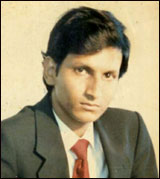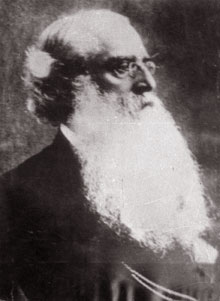Sri Lanka’s image builders
Broadly speaking, one can identify five distinct constituencies that
shape Sri Lanka’s image abroad: First Western Governments - which I
define from a politico-cultural
|

Ravinath Aryasinha |
standpoint, as countries that are geographically located in North
America, Western Europe, as well as Australia and New Zealand, second,
Non Governmental Organizations (NGOs) - these include both International
NGOs, as well as local NGOs who are dependent on foreign funding and
hence often adopt policies dictated from outside, third, Sri Lankans
abroad, particularly those living in Western countries; fourth,
foreigners visiting and doing business with Sri Lanka and fifth, the
international media.
It must be noted that each of these five constituencies weave
different narratives on Sri Lanka, which successive Governments of Sri
Lanka have had to grapple with. While being informed by this past, today
my focus will be on the challenges that lie ahead. I do so conscious
that, unlike in the earlier period, we also have a historic opportunity
of succeeding; that of not having to fear whether our carefully laid out
plans could be derailed by the next bomb.
Western Governments
I justify my differentiation of Western Governments from governments
elsewhere, not only because their actions receive greater media
attention and contribute to image formation, but more so because other
countries that engage Sri Lanka, better understand the nuances
concerning developments in the country, than most Western Governments
do.
Although much of the current criticism of Sri Lanka emanating from
the West is posited in terms of what is referred to as the ‘last phase
of the conflict’, it would be fair to say that most issues arose over a
longer period of unprecedented turbulence in Sri Lanka’s contemporary
history due to a fundamental difference of perception, as to how the Sri
Lankan Government should deal with the LTTE.
Most Western Governments’ believed that there was no military
solution to the conflict and that the LTTE must be engaged in talks at
any cost.
Some even had the audacity to suggest that the LTTE was invincible
and that it would be unwise for the Sri Lankan Government to try to
confront them. A complicating factor was that some others were seeking
to find a role for themselves in Sri Lanka’s quest to resolve their own
problems, regardless of the efficacy of their contribution.
However, having had the benefit of the experience of his four
predecessors in negotiating with and confronting the LTTE during their
respective terms and having gone the extra mile to engage the LTTE in
2005/2006 the first year of his own administration, President Mahinda
Rajapaksa can hardly be faulted, as all of his predecessors did, for
seeking to militarily defeat the LTTE. That he succeeded, carrying the
people of Sri Lanka and influential neighbours with him, was what defied
the theory - that terrorism cannot be militarily defeated. Ever since,
some Western countries have been unwilling to do what all good
scientists do - that is to acknowledge that when facts no longer fit a
theory, it is the theory that must change.
Infrastructure development
|

Colonel Henry Steel Olcott |
Despite many of the concerns that had earlier given rise for some
Western countries to pass strictures on Sri Lanka having been largely
addressed over the last 18 months (i.e. all child soldiers recruited by
the LTTE released, 90 percent of the IDPs resettled, more than a third
of the former LTTE cadres rehabilitated and re-integrated into civil
society, restoration of livelihoods, infrastructure development and
recommencement of the electoral process etc.), the continuing external
pressure that is sought to be exerted on Sri Lanka is highly unwarranted
and indeed offensive.
What is particularly troubling is the lack of objectivity by some
Western Governments in their assessment of the Sri Lanka situation,
relying to a large extent on questionable information provided by
parties with vested interests, who constitute a vociferous minority-
some INGOs and academics, sections of the media, as well as the pro-LTTE
Tamil Diaspora.
Notwithstanding the dilemmas confronted by the Sri Lankan State, a
democracy seeking to defeat terrorism being no different from other
theatres of conflict, the absence of a common set of parameters within
which one could have judged questions of necessity and proportionality
in dealing with terrorists, has complicated the different narratives
that have been written in the aftermath of the conflict in Sri Lanka.
It is ironic that this happens, despite no tangible evidence having
been placed before the world to date, to support the allegations
levelled against the Sri Lanka Government, at a time when
incontrovertible evidence is emerging from certain other theatres of
conflict of such atrocities and gross human rights violations that have
been committed, but glossed over due to the political clout of such
States.
NGOs
We are aware that NGOs yield considerable influence on the
decision-making processes in the West. From a Sri Lankan perspective,
while I am conscious of the fact that one must not paint all NGOs with
the same brush and admittedly there are many who played a significant
role during the long years of the conflict and its immediate aftermath,
the activities of some NGOs operating in Sri Lanka at present and of
those making pronouncements from abroad on the situation in Sri Lanka,
leave much to be desired.
While the purported intentions of these NGOs may seem noble, their
actions leave one with the unmistakable impression that rather than
helping Sri Lanka move forward, their primary pre-occupation appears to
be to advance their own agenda.
If one was left in any doubt about this tendency, the recent refusal
to present evidence before the Lessons Learnt and Reconciliation
Commission (LLRC) by at least three such INGOs - the Human Rights Watch
(HRW), Amnesty International (AI) and the International Crisis Group (ICG),
reinforces the impression that they prefer to voice allegations from
afar, rather than subjecting them to scrutiny.
It is particularly unfortunate that they should do so, given that the
LLRC was established on May 15, 2010 as a domestic process to address
the emotional trauma of the decades-long conflict and to lay the
foundation for reconciliation, a step that has been encouraged and
welcomed widely both nationally and internationally.
To be continued |



